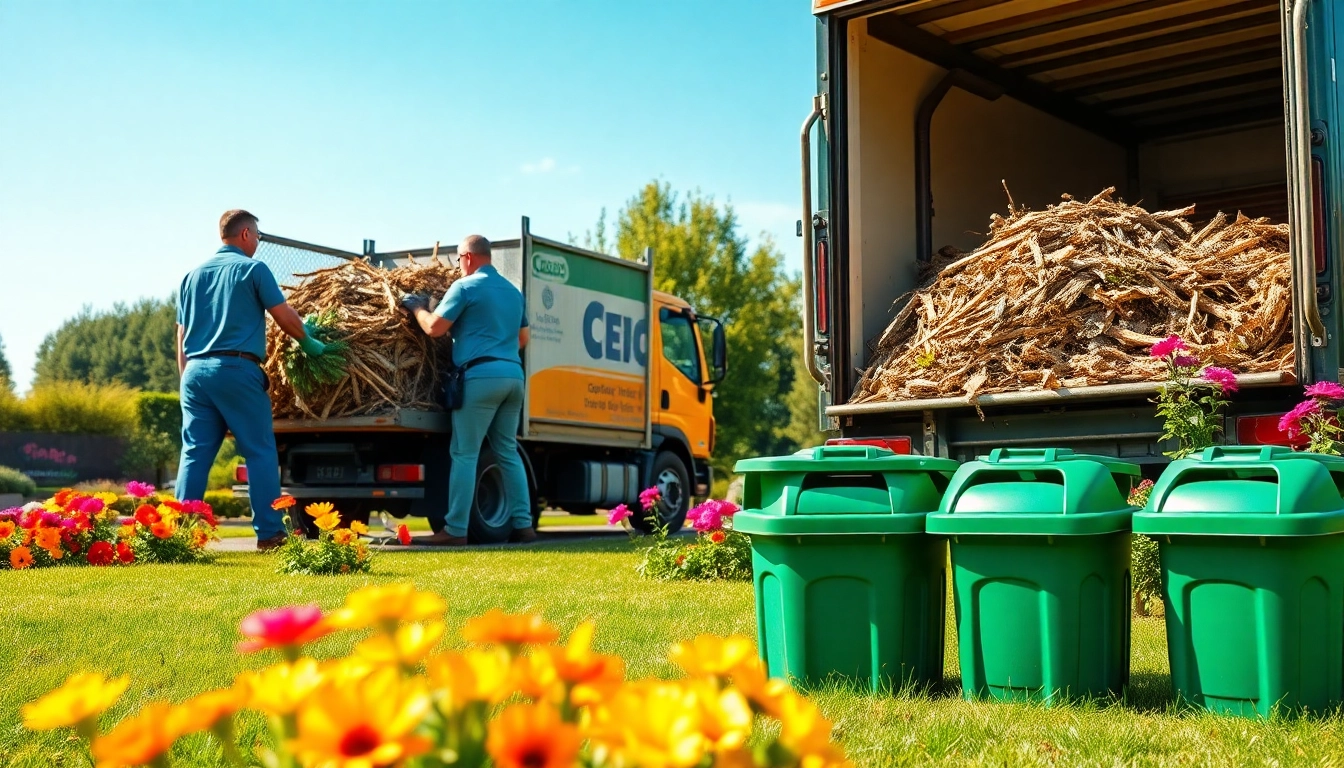
Understanding Fencing Options in Manchester
When it comes to enhancing the privacy, security, and aesthetics of your property in Manchester, the role of quality fencing cannot be understated. This is especially true given the variety of fencing companies Manchester has to offer. Homeowners and business owners alike should familiarize themselves with the numerous types of fences available, their benefits, and how to select a style most suited to their needs.
Types of Fences Offered by Fencing Companies Manchester
The selection of fencing materials available is vast and varied. Here are some popular types often provided by fencing companies in Manchester:
- Wood Fencing: Classic and versatile, wooden fences can add warmth and natural beauty to any property. They can be customized in various styles, from picket to panel fencing, and are often cost-effective, though they may require regular maintenance.
- Vinyl Fencing: Known for its durability and low maintenance, vinyl fencing comes in a wide array of colors and styles that can mimic wood or serve as a solid barrier. It’s suitable for both residential and commercial properties.
- Metal Fencing: Including options such as wrought iron and chain-link fences, metal fencing is praised for its strength and security. Wrought iron offers a traditional and elegant appearance, while chain-link is cost-effective and easy to install.
- Composite Fencing: Made from a blend of wood and plastic, composite fences are gaining popularity due to their environmental friendliness and resistance to decay. They offer the aesthetic of wood with enhanced durability.
- Electric Fencing: Primarily used for security, electric fences can deter intruders while being unobtrusive in design. They are often used in conjunction with other types of fences for added security.
Benefits of Installing Professional Fencing
Investing in professional fencing comes with several advantages:
- Enhanced Security: Quality fencing acts as a physical barrier against intruders, thereby protecting your property, family, or business.
- Increased Privacy: A well-installed fence can shield your outdoor space from prying eyes, creating a more comfortable environment.
- Property Value Boost: A beautifully designed fence can enhance your property’s curb appeal and value, attracting potential buyers.
- Boundary Definition: Fencing clearly delineates property lines, reducing disputes with neighbors and providing clarity about your land.
- Noise Reduction: Certain types of fencing, particularly solid styles, can serve to block out noise from busy roads or neighbors, creating a quieter home environment.
How to Choose the Right Fencing Style
Selecting the appropriate fencing style requires consideration of several factors:
- Purpose: Analyze what you need from the fence—security, privacy, aesthetics, or a combination of these elements.
- Local Aesthetics: Consider the architectural style of your property and other homes in your neighborhood. A fencing style that harmonizes with your environment will add to the property’s charm.
- Maintenance Commitments: Different materials require varying levels of upkeep. Consider your willingness to maintain a wooden fence compared to the low-maintenance vinyl option.
- Budget: Costs can vary significantly. Have a clear budget in mind and choose a style that fits within that framework while meeting your needs.
- Regulatory Compliance: Ensure the chosen style complies with local regulations regarding height and type of fencing permitted.
Key Factors in Selecting Fencing Companies Manchester
Choosing a fencing company is as critical as selecting the right fence. Here are some key factors to consider:
What to Look for in a Reputable Company
A reputable fencing company should exhibit certain hallmarks:
- Experience and Reputation: Look for a company with a solid track record. Longevity in the business often indicates reliability.
- Licensing and Insurance: Ensure the company has the appropriate business licenses and insurance to protect both parties in case of accidents.
- Portfolio: A portfolio showcasing previous work offers insights into the company’s capabilities and service quality.
- Warranties: A strong warranty on both materials and labor suggests confidence in product quality and workmanship.
Comparing Costs and Services
Pricing can vary widely among fencing companies. It’s essential to obtain multiple quotes and understand what services are included:
- Detailed Quotes: Ensure the quotes outline materials, labor, disposal, and any additional costs involved in the project.
- Service Offerings: Determine if the company provides installation only or additional services like maintenance and repair.
- Price vs. Quality: Opt for a balance between cost and quality. Choosing the cheapest option can lead to subpar results.
Reading Customer Reviews and Testimonials
Customer feedback is invaluable when selecting a fencing company. Pay attention to:
- Online Reviews: Browse reputable review sites to gauge customer satisfaction and any recurring issues.
- Testimonials: Company websites often feature customer testimonials, but be wary as these could be curated. Look for balanced narratives.
- Word of Mouth: Ask friends, family, or neighbors about their experiences and recommendations. Personal referrals often yield trustworthy leads.
Assessing Your Fencing Needs
Properly assessing your fencing needs is vital for ensuring your needs are met effectively. This assessment includes evaluating your property type and requirements:
Residential vs. Commercial Fencing Requirements
Residential fencing often focuses on aesthetics and privacy, whereas commercial fencing prioritizes security and durability. Consider:
- Residential: Privacy fences can be higher in design and include an aesthetic component, while child safety is also taken into account for families.
- Commercial: Establishments may require tall, sturdy fences with minimal design features but a focus on preventing trespassing and vandalism.
Understanding Local Regulations and Ordinances
Before committing to any fencing project, research local regulations, which may dictate:
- Height Restrictions: Many areas enforce height limits for residential fences to maintain neighborhood aesthetics.
- Material Restrictions: Certain materials may be banned in specific areas for reasons ranging from environmental to aesthetic preferences.
- Permit Requirements: Some municipalities require permits for fencing installations, so checking ahead can prevent fines or forced removal of an installed fence.
Site Preparation and Inspection Tips
Successful installation begins with proper site preparation:
- Property Lines: Clearly mark your property lines to avoid boundary disputes and ensure compliance with local laws.
- Ground Conditions: Inspect soil and terrain; rocky or uneven ground may require extra work during installation.
- Utilities: Confirm there are no underground utilities where the fence will be installed. Call utility companies to mark lines and avoid accidents.
Maintaining Your Fence After Installation
Post-installation maintenance is crucial for the longevity and performance of your fence. Here are some best practices:
Routine Maintenance Best Practices
Maintaining your fence requires consistent attention and care:
- Regular Inspections: Set a schedule to inspect your fence periodically for any signs of damage, rot, or pest infestation.
- Cleaning: Determine if fences need to be washed or cleared of debris. Wood fences may require periodic sealing to protect against moisture.
- Weatherproofing: For wooden and composite fences, a weatherproofing treatment can extend life and reduce maintenance needs.
How to Address Common Fence Issues
A lot of issues can arise over time. Here are effective solutions:
- Repairing Damage: Small breaks or cracks in wooden fences can often be patched or reinforced with brackets. Metal fences may need welding.
- Repainting and Resealing: Keep your fence looking fresh with timely painting or staining, which can also help prevent decay and rust.
- Replacing Posts: If a post is damaged, consider replacing it entirely to maintain a sturdy fence structure.
When to Call Fencing Professionals for Repairs
While some tasks can be handled DIY, it’s vital to recognize when professional help is necessary:
- Severe Damage: If your fence has extensive damage or has fallen over, a professional is needed to assess and reconstruct safely.
- Complex Repairs: Tasks requiring specialized skills, such as welding for metal fences or replacement of intricate components, are better handled by experts.
- Time Constraints: If you’re busy or unable to invest the time needed for repairs, reaching out for professional assistance may be the best option.
Why Choose Local Fencing Companies Manchester?
Selecting a local fencing company has distinct advantages that shouldn’t be overlooked:
The Importance of Supporting Local Businesses
Engaging local businesses benefits the community economically. Local fencing companies often contribute to the local economy through taxes, employment, and purchasing materials from local suppliers, and they typically have a vested interest in maintaining a positive reputation.
Community Trust and Reputation Factors
Choosing a local provider generally means opting for a company that has established itself within the community:
- Access to Local Insights: Local companies are more aware of regional trends, preferences, and constraints that can affect your fencing project.
- Personal Connections: A local company is likely to build relationships with customers, often resulting in better service and outcomes.
- Accountability: Local companies are easier to reach for follow-ups or address issues arise post-installation.
Benefits of Local Expertise in Fencing Solutions
Local fencing companies boast valuable experience regarding regional climates and conditions:
- Material Suitability: They understand the specific materials that can withstand local weather patterns and environmental conditions.
- Design Preferences: Local experts can recommend designs that align well with the architectural characteristics of your neighborhood.
- Availability of Support: A local company can offer timely maintenance and repair services that are often more convenient than national chains.







